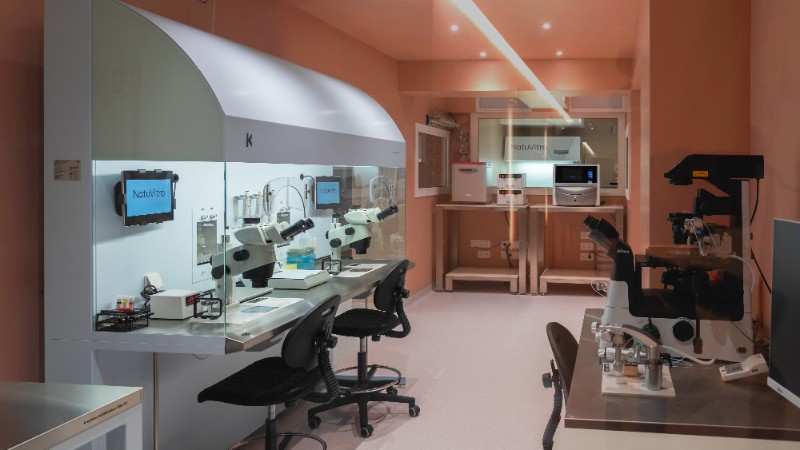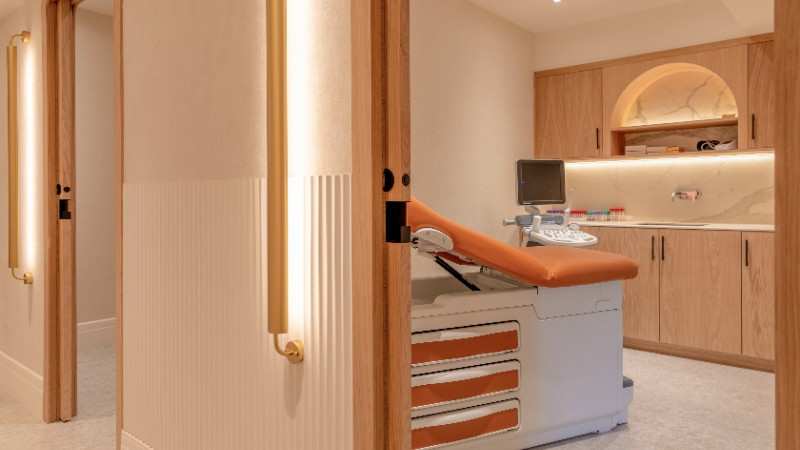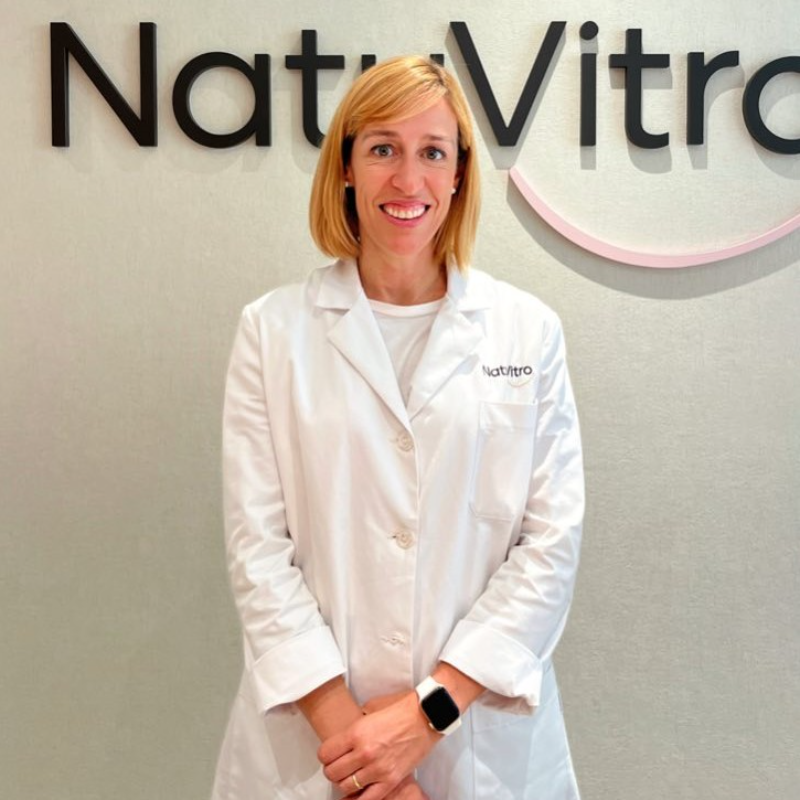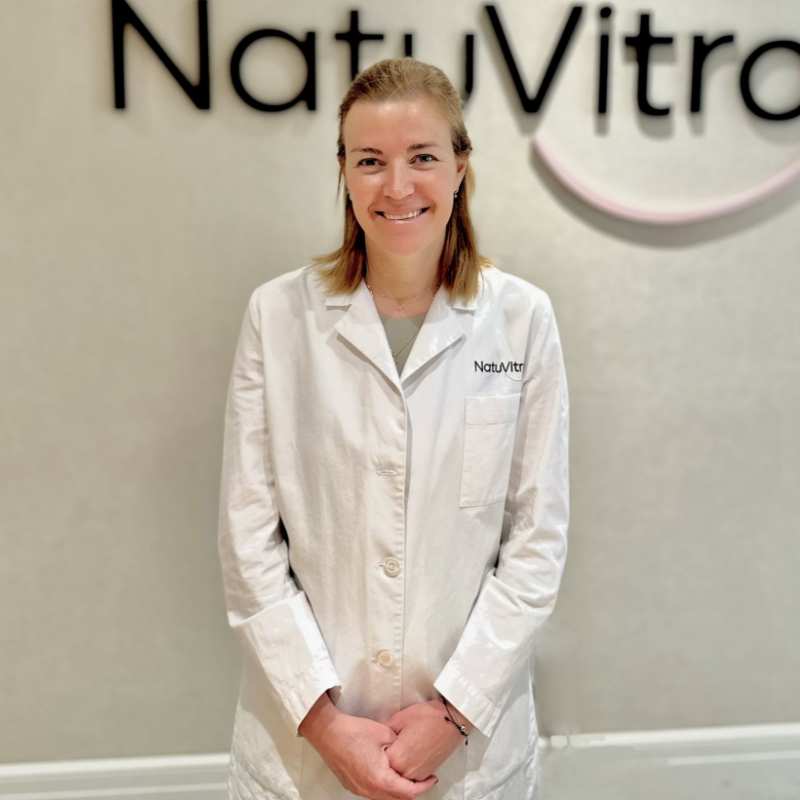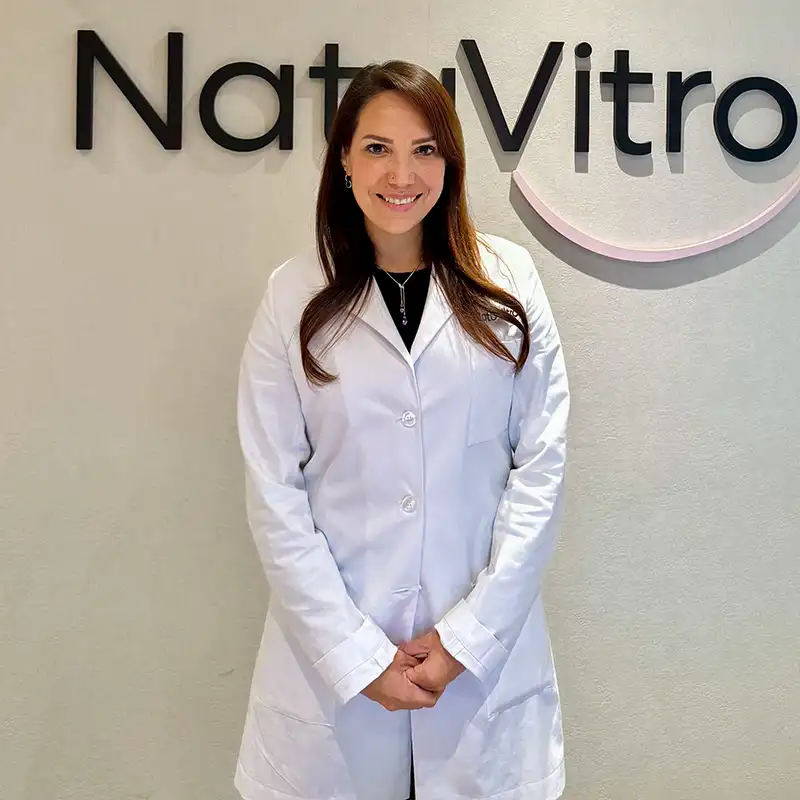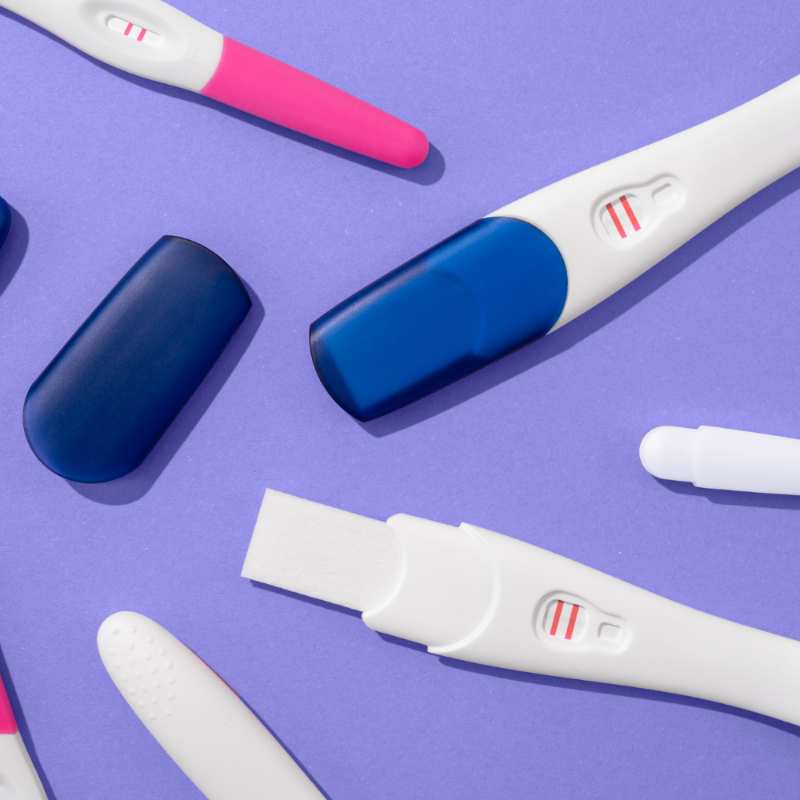
What is the CGT test?
The CGT (Carrier Genetic Testing) is a modern genetic test that allows determining whether partners carry hereditary mutations and if they will pass them on to their future child. This method is based on Next-Generation Sequencing (NGS) technology, which offers high precision and allows simultaneous analysis of tens of thousands of genome segments. Thanks to this, the test covers a wide range of genes, including mutations responsible for serious diseases such as cystic fibrosis, spinal muscular atrophy, fragile X syndrome, and many other rare hereditary pathologies. The CGT is particularly important when planning a pregnancy, as it helps identify potential risks and discuss strategies with specialists for the best reproductive choices.
Recent studies confirm the importance of these tests: see, for example, publications in Human Reproduction (doi:10.1093/humrep/dez173) and Fertility and Sterility (doi:10.1016/j.fertnstert.2020.05.012), which describe the effectiveness of using extended carrier panels. Similarly, the European Society of Human Reproduction and Embryology (ESHRE) publishes updated recommendations on CGT use (https://www.eshre.eu).
Genetic diseases: causes, risks, and consequences
Genetic diseases are pathologies resulting from mutations, meaning changes in the structure of genes. These modifications can be spontaneous or inherited, but in most cases, mutation carriers show no symptoms and are unaware of potential risks. There may be no family history of the disease, making the problem hidden and difficult to diagnose without specific analysis.
However, when both partners carry the same mutations, the risk of having a child with a monogenic disease increases significantly. On average, about 90% of people are carriers of at least one genetic mutation, and around 40% are carriers of 4 to 5 different variants. In 8% of cases, the mutations in partners coincide, resulting in a risk of having a child with a serious hereditary disease. These pathologies can manifest early in childhood and often require costly treatments, making early diagnosis especially important.
Types of CGT: levels of analysis
Depending on the goals and the genetic panel of the test, different types of CGT have been developed:
- CGT Essential – a basic version covering 26 diseases, including the study of 24 genes and more than 2,800 mutations. Suitable for those seeking quick and affordable screening of major pathologies.
- CGT Plus – an advanced test that allows detection of up to 570 diseases. It analyzes 455 genes in men and 519 genes in women, as well as over 20,000 mutations. This option is preferable for high-risk families or those preparing for assisted reproductive techniques.
- CGT Exome – the most comprehensive screening, covering more than 2,200 diseases (1,979 in men and 2,043 in women) and over 50,000 mutations. This analysis offers the broadest possible coverage and is recommended in complex cases or with a family history of diseases.
Each of these options helps doctors and future parents choose the optimal strategy to plan pregnancy, reduce risks, and gain confidence in their decision.
Who is the test recommended for?
CGT is useful for a wide range of patients and couples:
- People planning a pregnancy who want objective information about potential genetic risks;
- Couples preparing for pregnancy using assisted reproductive techniques, including IVF;
- Patients participating in IVF with egg donation or IVF with double donation;
- Families who already have a child with a genetic disease and are considering another pregnancy;
- Individuals with known family history of hereditary diseases;
- Women and men of advanced reproductive age, as spontaneous mutation risks increase with age.
Thus, the test is recommended not only for obvious medical reasons but also as a preventive measure for anyone consciously planning to start a family.
If identical mutations are detected
If identical mutations are found in both partners, the risk of having a child with a monogenic disease increases significantly. In such cases, specialists recommend using assisted reproductive techniques. An IVF program with ICSI is employed, along with preimplantation genetic diagnosis: PGT-A to detect chromosomal anomalies and PGT-M to exclude specific monogenic pathologies. These methods enable selecting a healthy embryo for transfer and greatly reduce the risk of hereditary disease transmission.
It is important to emphasize that modern technologies make the process as safe and effective as possible. Parents have the opportunity to avoid difficult diagnoses and be confident in their child's future health.
How does the test work?
The analysis process is very simple and requires no special preparation. The CGT is performed using venous blood, making the procedure comfortable and accessible. Genetic test results remain valid for life, as a person's genetic code does not change.
The test can be performed by one partner, but analyzing both spouses provides the most complete and reliable picture of risks. The joint test allows identification of all possible mutation combinations and discussion of options with doctors in advance.
Attitude towards prenatal screening
Undertaking a CGT does not exclude the need for prenatal screening during pregnancy. Even if pregnancy results from IVF and a genetically healthy embryo has been transferred, monitoring fetal development remains necessary. Various factors can influence pregnancy progression: the mother’s overall health, viral or bacterial infections contracted, environmental influences. Therefore, CGT is regarded as a complement, not a replacement, for standard monitoring methods.
Practical significance and benefits
CGT offers a number of advantages:
- It can detect hidden risks not identifiable through traditional analyses;
- It helps doctors prepare an advance treatment plan and choose the best strategy;
- It reduces anxiety levels for expectant parents, increasing confidence;
- It promotes the birth of healthy children and reduces the risk of transmitting serious hereditary diseases.
CGT is particularly important in assisted reproduction programs. For patients undergoing IVF or IVF with egg donation, or double donation, this test becomes an obligatory part of preparation, increasing the chances of a successful and healthy pregnancy.
CGT is a step towards the future. The genetic test is not just a simple procedure but an important tool that makes family planning more conscious and safer. Understanding hereditary factors helps parents make informed decisions, avoid many risks, and diagnose diseases timely. NGS technologies open new horizons in medicine and are actively implemented in leading European clinics.
It is worth noting that at the Barcelona PMA Clinic NatuVitro, these tests are now part of a comprehensive approach to reproductive health. Here, genetic testing is included in pregnancy preparation programs, helping patients worldwide plan their families safely and confidently. This approach combines high-tech equipment, expert experience, and personalized service, making Barcelona one of the leading medical tourism centers in reproductive medicine.
Thus, the CGT can be seen as a step towards the future, helping families regain confidence and hope in the birth of a healthy child.
References
- De Rycke, M., et al. ESHRE Guidelines for Carrier Screening and Genetic Testing in Reproductive Medicine. Human Reproduction, 2019. doi:10.1093/humrep/dez173.
- Henneman, L., et al. Responsible Implementation of Expanded Carrier Screening. Human Reproduction, 2016. doi:10.1093/humrep/dew050.
- Martin, J., et al. Expanded Carrier Screening and Management of Reproductive Risks. Fertility and Sterility, 2020. doi:10.1016/j.fertnstert.2020.05.012.
- European Society of Human Reproduction and Embryology (ESHRE). Guidelines and Recommendations. https://www.eshre.eu
- American College of Medical Genetics and Genomics (ACMG). Practical Guidelines for Genetic Testing. Genetics in Medicine, 2021.
Our experts are ready to examine your case history, clarify your choices, and address every question you have.
Don't wait to make informed decisions – your personalized guidance awaits!
- Spain (España)+34
- France (La France)+33
- Italy (Italia)+39
- United Kingdom+44
- United States+1
- Belgium (België)+32
- Switzerland (Schweiz/Suisse)+41
- Germany (Deutschland)+49
- Netherlands (Nederland)+31
- Afghanistan (افغانستان)+93
- Albania (Shqipëri)+355
- Algeria (الجزائر)+213
- American Samoa+1
- Andorra+376
- Angola+244
- Anguilla+1
- Antigua and Barbuda+1
- Argentina+54
- Armenia (Հայաստան)+374
- Aruba+297
- Ascension Island+247
- Australia+61
- Austria (Österreich)+43
- Azerbaijan (Azərbaycan)+994
- Bahamas+1
- Bahrain (البحرين)+973
- Bangladesh (বাংলাদেশ)+880
- Barbados+1
- Belarus (Беларусь)+375
- Belize+501
- Benin (Bénin)+229
- Bermuda+1
- Bhutan (འབྲུག)+975
- Bolivia+591
- Bosnia and Herzegovina (Босна и Херцеговина)+387
- Botswana+267
- Brazil (Brasil)+55
- British Indian Ocean Territory+246
- British Virgin Islands+1
- Brunei+673
- Bulgaria (България)+359
- Burkina Faso+226
- Burundi (Uburundi)+257
- Cambodia (កម្ពុជា)+855
- Cameroon (Cameroun)+237
- Canada+1
- Cape Verde (Kabu Verdi)+238
- Caribbean Netherlands+599
- Cayman Islands+1
- Central African Republic (République centrafricaine)+236
- Chad (Tchad)+235
- Chile+56
- China (中国)+86
- Christmas Island+61
- Cocos (Keeling) Islands+61
- Colombia+57
- Comoros (جزر القمر)+269
- Congo (DRC) (Jamhuri ya Kidemokrasia ya Kongo)+243
- Congo (Republic) (Congo-Brazzaville)+242
- Cook Islands+682
- Costa Rica+506
- Côte d’Ivoire+225
- Croatia (Hrvatska)+385
- Cuba+53
- Curaçao+599
- Cyprus (Κύπρος)+357
- Czech Republic (Česká republika)+420
- Denmark (Danmark)+45
- Djibouti+253
- Dominica+1
- Dominican Republic (República Dominicana)+1
- Ecuador+593
- Egypt (مصر)+20
- El Salvador+503
- Equatorial Guinea (Guinea Ecuatorial)+240
- Eritrea+291
- Estonia (Eesti)+372
- Eswatini+268
- Ethiopia+251
- Falkland Islands (Islas Malvinas)+500
- Faroe Islands (Føroyar)+298
- Fiji+679
- Finland (Suomi)+358
- French Guiana (Guyane française)+594
- French Polynesia (Polynésie française)+689
- Gabon+241
- Gambia+220
- Georgia (საქართველო)+995
- Ghana (Gaana)+233
- Gibraltar+350
- Greece (Ελλάδα)+30
- Greenland (Kalaallit Nunaat)+299
- Grenada+1
- Guadeloupe+590
- Guam+1
- Guatemala+502
- Guernsey+44
- Guinea (Guinée)+224
- Guinea-Bissau (Guiné Bissau)+245
- Guyana+592
- Haiti+509
- Honduras+504
- Hong Kong (香港)+852
- Hungary (Magyarország)+36
- Iceland (Ísland)+354
- India (भारत)+91
- Indonesia+62
- Iran (ایران)+98
- Iraq (العراق)+964
- Ireland+353
- Isle of Man+44
- Israel (ישראל)+972
- Italy (Italia)+39
- Jamaica+1
- Japan (日本)+81
- Jersey+44
- Jordan (الأردن)+962
- Kazakhstan (Казахстан)+7
- Kenya+254
- Kiribati+686
- Kosovo+383
- Kuwait (الكويت)+965
- Kyrgyzstan (Кыргызстан)+996
- Laos (ລາວ)+856
- Latvia (Latvija)+371
- Lebanon (لبنان)+961
- Lesotho+266
- Liberia+231
- Libya (ليبيا)+218
- Liechtenstein+423
- Lithuania (Lietuva)+370
- Luxembourg+352
- Macau (澳門)+853
- North Macedonia (Македонија)+389
- Madagascar (Madagasikara)+261
- Malawi+265
- Malaysia+60
- Maldives+960
- Mali+223
- Malta+356
- Marshall Islands+692
- Martinique+596
- Mauritania (موريتانيا)+222
- Mauritius (Moris)+230
- Mayotte+262
- Mexico (México)+52
- Micronesia+691
- Moldova (Republica Moldova)+373
- Monaco+377
- Mongolia (Монгол)+976
- Montenegro (Crna Gora)+382
- Montserrat+1
- Morocco (المغرب)+212
- Mozambique (Moçambique)+258
- Myanmar (Burma) (မြန်မာ)+95
- Namibia (Namibië)+264
- Nauru+674
- Nepal (नेपाल)+977
- New Caledonia (Nouvelle-Calédonie)+687
- New Zealand+64
- Nicaragua+505
- Niger (Nijar)+227
- Nigeria+234
- Niue+683
- Norfolk Island+672
- North Korea (조선 민주주의 인민 공화국)+850
- Northern Mariana Islands+1
- Norway (Norge)+47
- Oman (عُمان)+968
- Pakistan (پاکستان)+92
- Palau+680
- Palestine (فلسطين)+970
- Panama (Panamá)+507
- Papua New Guinea+675
- Paraguay+595
- Peru (Perú)+51
- Philippines+63
- Poland (Polska)+48
- Portugal+351
- Puerto Rico+1
- Qatar (قطر)+974
- Réunion (La Réunion)+262
- Romania (România)+40
- Russia (Россия)+7
- Rwanda+250
- Saint Barthélemy+590
- Saint Helena+290
- Saint Kitts and Nevis+1
- Saint Lucia+1
- Saint Martin (Saint-Martin (partie française))+590
- Saint Pierre and Miquelon (Saint-Pierre-et-Miquelon)+508
- Saint Vincent and the Grenadines+1
- Samoa+685
- San Marino+378
- São Tomé and Príncipe (São Tomé e Príncipe)+239
- Saudi Arabia (المملكة العربية السعودية)+966
- Senegal (Sénégal)+221
- Serbia (Србија)+381
- Seychelles+248
- Sierra Leone+232
- Singapore+65
- Sint Maarten+1
- Slovakia (Slovensko)+421
- Slovenia (Slovenija)+386
- Solomon Islands+677
- Somalia (Soomaaliya)+252
- South Africa+27
- South Korea (대한민국)+82
- South Sudan (جنوب السودان)+211
- Spain (España)+34
- Sri Lanka (ශ්රී ලංකාව)+94
- Sudan (السودان)+249
- Suriname+597
- Svalbard and Jan Mayen+47
- Sweden (Sverige)+46
- Syria (سوريا)+963
- Taiwan (台灣)+886
- Tajikistan+992
- Tanzania+255
- Thailand (ไทย)+66
- Timor-Leste+670
- Togo+228
- Tokelau+690
- Tonga+676
- Trinidad and Tobago+1
- Tunisia (تونس)+216
- Turkey (Türkiye)+90
- Turkmenistan+993
- Turks and Caicos Islands+1
- Tuvalu+688
- U.S. Virgin Islands+1
- Uganda+256
- Ukraine (Україна)+380
- United Arab Emirates (الإمارات العربية المتحدة)+971
- Uruguay+598
- Uzbekistan (Oʻzbekiston)+998
- Vanuatu+678
- Vatican City (Città del Vaticano)+39
- Venezuela+58
- Vietnam (Việt Nam)+84
- Wallis and Futuna (Wallis-et-Futuna)+681
- Western Sahara (الصحراء الغربية)+212
- Yemen (اليمن)+967
- Zambia+260
- Zimbabwe+263
- Åland Islands+358
Visit our clinic
Location
Call us now
Leave a message

